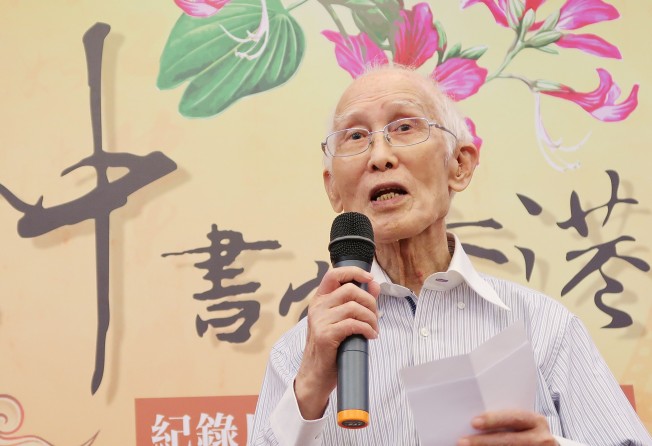Passionate poet who never forgot his roots
Yu Kwang-chung, who was born in mainland China but died in Taiwan at 89, touched all with his works in which he told of his love for the motherland and nature

Beloved poet, essayist and scholar Yu Kwang-chung, who died in Kaohsiung on Thursday at the age of 89, was passionate about his roots. He lived in Taiwan, but was born on the mainland and had also worked in Hong Kong and the United States. Those experiences did not detract from his feelings for China and a belief in Chinese values and traditions, which he expressed succinctly in his writings. He said he thought of identity like the circles in the cross-section of a tree trunk, with the outermost ring behind the bark being the motherland.
Those feelings were put simplest in his best-known poem, Homesickness, which is among works taught in schools on the mainland and in Hong Kong and Taiwan. Former premier Wen Jiabao quoted it in 2003 when asked during a meeting in New York with overseas Chinese about Beijing’s relationship with Taipei. The words express Yu’s deep affections: “When I was young, my homesickness was a small stamp, I was here, my mother was there. After growing up, my homesickness was a narrow ticket, I was here, my bride was there. Later, my homesickness was a little tomb, I was outside, my mother was inside. And now, my homesickness is a shallow strait, I am here, the mainland is there.”
Yu’s teaching career took him from Taiwan to the US and Hong Kong, where he was with the department of Chinese language and literature at Chinese University from 1974 to 1985, during which he wrote many of his most popular works. His writings centred on four literary areas, poetry, prose, criticism and translation, and as his stature grew, so did demand around the world for guest readings and lectures. He was much honoured with prizes and degrees. His experiences led him to famously remark that the mainland was his mother, Taiwan his wife, Hong Kong his lover and Europe his affair.
Although considered a patriot, he was not shy about criticising the Communist Party or Taiwanese seekers of independence. But he will be best known for the emotions of his poems, which made him popular with composers of music. In them, he spoke of a love for the motherland and nature, expressed concerns for mankind and reflected on life.